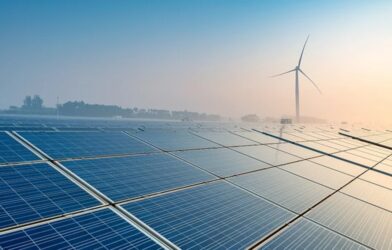Researchers from China and the United States claim to have created a one-step process that can efficiently turn mixed plastic garbage into petrol at room temperature and ambient pressure with an efficiency of over 95%.
The method is intended to be scalable for industrial application and, according to the scientists, requires less energy, less equipment, and fewer stages than traditional plastic-to-fuel approaches. Researchers from Columbia University, the Technical University of Munich, East China Normal University (ECNU), and Pacific Northwest National Laboratory, which is financed by the US Department of Energy, are involved in the project. The final products of the process include hydrochloric acid, chemical raw materials, and the primary ingredients of petrol. According to the scientists, this implies that the output might be used in the petroleum, culinary, pharmaceutical, metal, and water treatment industries.
The technique “supports a circular economy by converting diverse plastic waste into valuable products in a single step,” according to the inventors. The group blends plastic waste with light isoalkanes, which are hydrocarbon leftovers from refinery operations, to complete the conversion.The procedure produces “gasoline range” hydrocarbons, mostly molecules with six to twelve carbons, which are the main constituent of gasoline, the research claims. A number of the high-temperature, energy-intensive production methods discussed in the study may be replaced by the recovered hydrochloric acid, which can be safely neutralised and used again as a raw material.
The advancement is framed by the researchers in relation to the prevalence of plastics in the world’s waste streams. About half of the world’s plastic trash is made up of polyolefins, particularly polyethylene and polypropylene, while the remaining 10% is made up of polyvinyl chloride (PVC). These materials include apparel, medical gadgets, appliances, pipes, containers, and packaging. Because PVC must be dechlorinated prior to processing in order to prevent the release of harmful substances, it presents a unique problem when it comes to conventional waste-to-energy processes like incineration. PVC is manufactured using vinyl chloride, a colourless gas that the US Environmental Protection Agency has classified as a carcinogen.
High-temperature dechlorination is usually necessary as an additional step in chemical upcycling processes that try to break down plastic into high-grade components. To avoid negative consequences and to get materials ready for delicate applications, dechlorination—the process of eliminating or neutralising chlorine from chlorinated compounds—is required.
Combining these steps is what the current study suggests. The researchers stated, “Here, we propose a single-stage process for upgrading waste PVC into [hydrochloric acid] and chlorine-free fuel-range hydrocarbons.”















Comments are closed